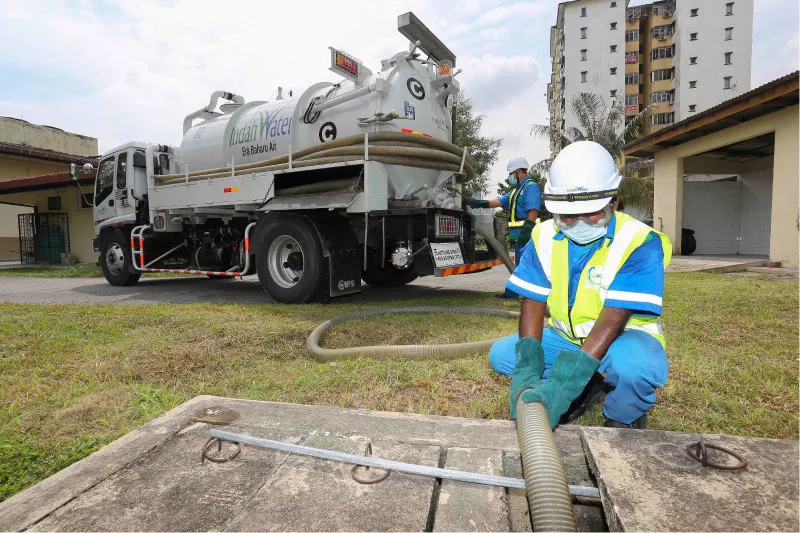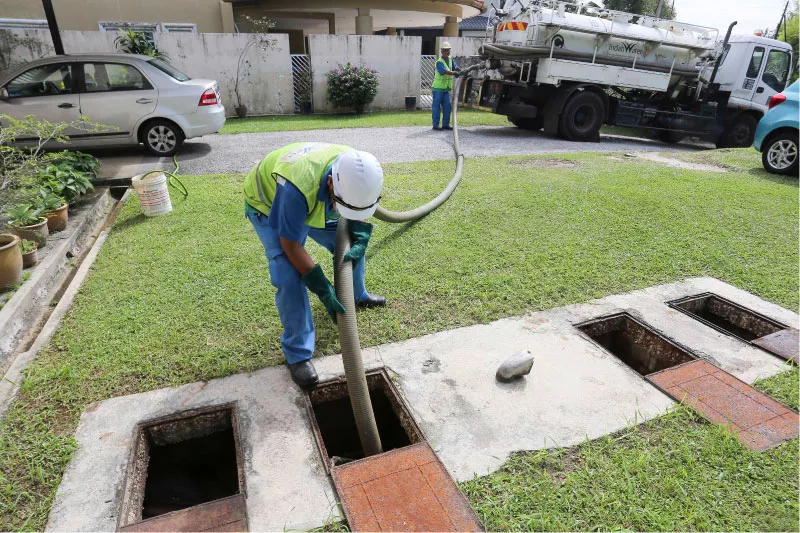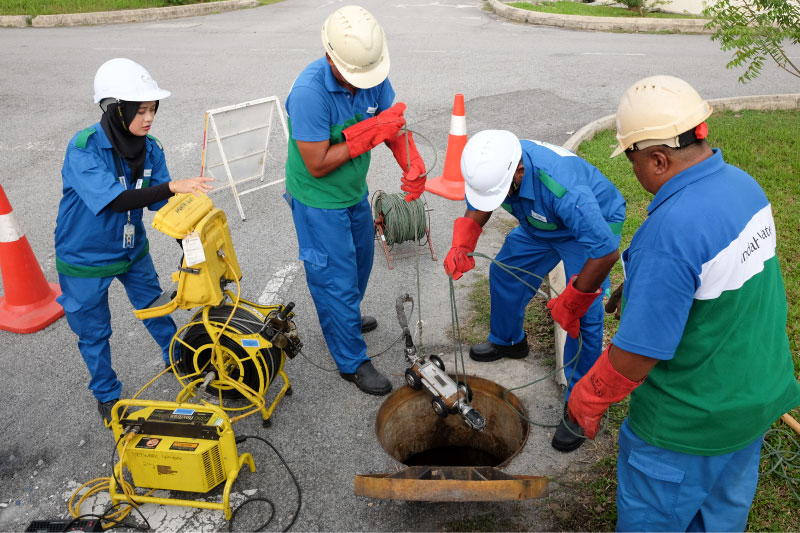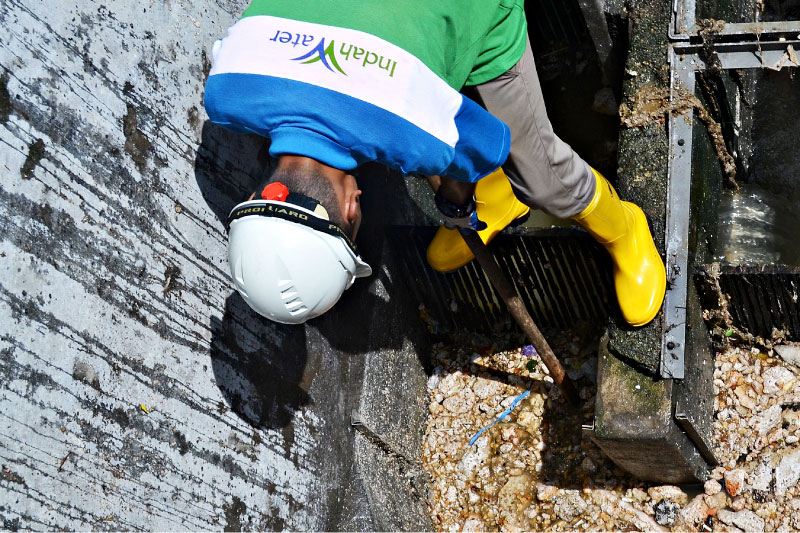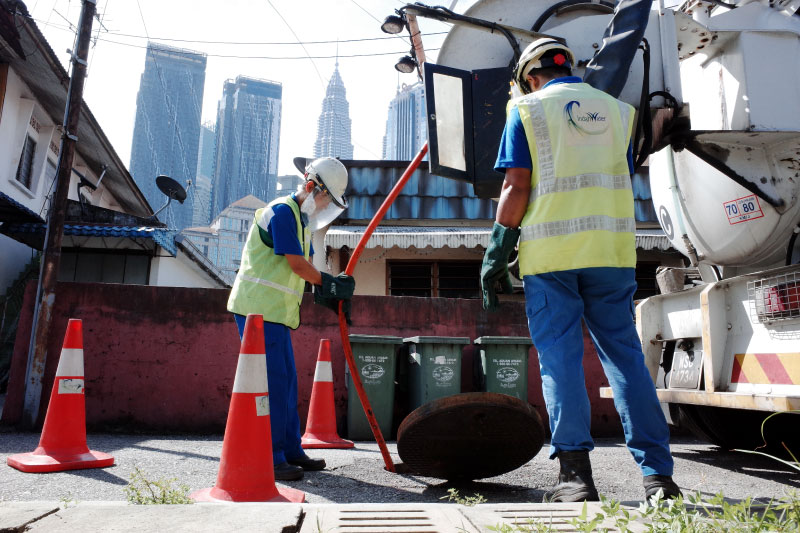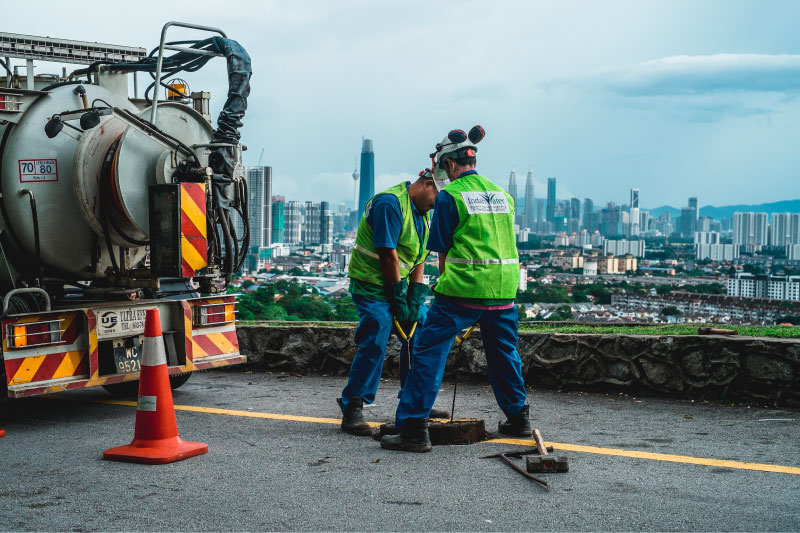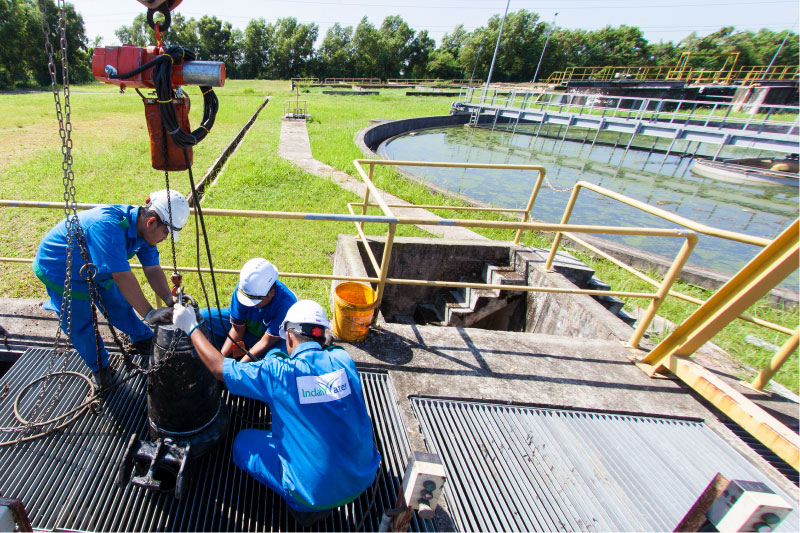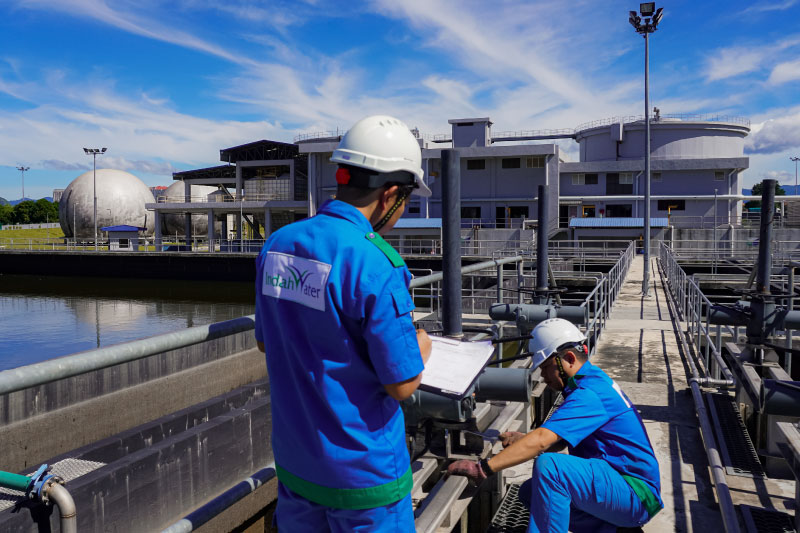Operations & Maintenance
IWK operates and maintains more than 8,000 sewage treatment plants (STPs) and network pumping stations in its operations area nationwide. In respect of its manpower excellence, IWK is managed by specialised professionals with vast experience in various fields of expertise ranging from planning and engineering, operations of all public sewerage assets, and day to day management of the entire services. This is done to preserve the environment and public health. Today, Malaysia enjoy one of the best sewerage services in the region.
Introduction to Desludging Services
Besides operating and maintaining public connected sewerage system, IWK also provides desludging services for non-connected sewerage system i.e: IST and pour flush to all customers under IWK’s operational area.
Under the Water Services Industry Act 2006, owners of premises with septic tanks are responsible for the maintenance of the septic tanks.
WATER SERVICES INDUSTRY ACT 2006
“Owners, management corporations or occupants of any premises that use septic tanks may be fined not exceeding RM50,000.00 if they do not desludge their septic tank on regular basis to ensure the efficiency of the septic tank ”
What is Septic Tank
Septic tank is a form of primary care facility consisting of one or more compartment that provide sewage treatment.
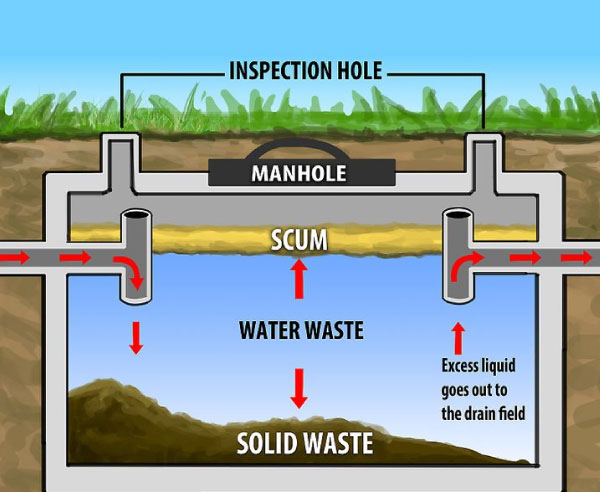
An efficient septic tank can store the sewage waste for up to 2 years. The sludge in the septic tank needs to be desludged on a regular basis (scheduled desludging).
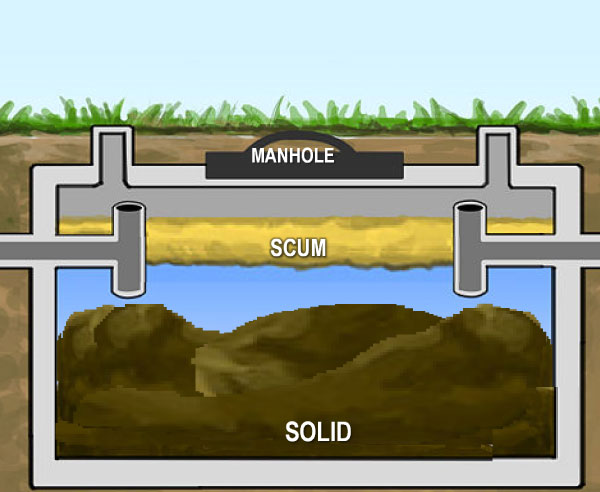
Untreated septic tanks will cause the sewage sludge to leak out into drains and can cause river pollution and contribute to unsafe water sources.
The septic tank only provides partial treatment of the sewage that flows into it and needs to be desludged on a regular basis, approximately once in two years, to ensure that it functions efficiently. If desludging is not carried out, the sludge level may exceed the storage capacity. When this happens, sewage retention time decreases. This will result in an incomplete breakdown of sewage and thus, untreated sewage and sludge solids will be released from the septic tank into the drain. Where septic tanks have a filter bed after the settlement chamber, the filter beds will become choked. This too will result in untreated sewage and sludge solids being discharged into drains.
